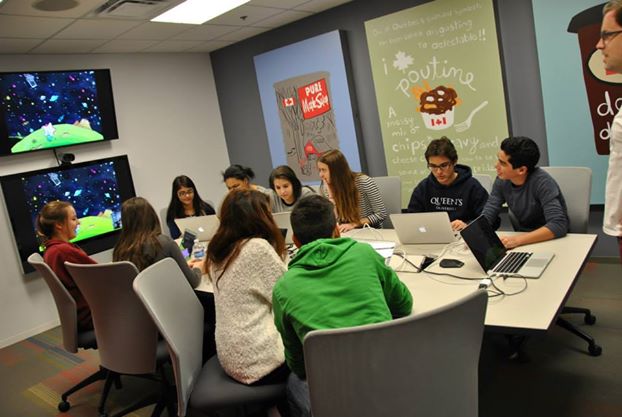
A recent study revealed students at an international school in Finland significantly outperformed U.S. students on tasks which measure digital literacy in social media and online news. The researchers suggest this may be due to the Finnish and International Baccalaureate curricula's different way of facilitating students' critical thinking skills compared to the US system and curriculum. The results of this study were published in the Journal of Research in International Education in April.
Critical thinking is a 21st century skill considered essential for today's students to navigate the Information Age and for their future work life.
But how well does the education system encourage the development of these skills?
In a recent study tasks measuring digital media literacy were administered at an international school in Finland to consider the efficacy and transfer of critical thinking skills. The task instruments utilised in the study were earlier developed by the Stanford History Education Group to determine the extent to which young people ask 'Who is behind the information?' and 'What is the evidence?' in scenarios taken from real world online situations.
The executive summary published by the Stanford researchers in winter of 2016 received widespread coverage from major news outlets around the world due to its corresponding with the advent of the 'fake news' phenomenon, as well as for the Stanford researchers describing U.S. student performance as 'dismaying' and 'bleak'.
"Many of the international outlets generalised the results of the U.S. students to their own socio-educational environments, which our more recent study cautions against," comment Shane Horn and Koen Veermans, who conducted the Finnish study at the University of Turku in Finland.
In this recent study two cohorts were measured: a pre-IB cohort preparing to enter the International Baccalaureate Diploma Programme, and a separate cohort preparing to graduate from the programme.
While the graduating IB2 cohort only slightly outperformed the entry level pre-IB cohort, both outperformed the compared Stanford's U.S. cohorts to a statistically significant degree.
"This study was largely to see if progress in the IB programme correlated with better performance on the tasks, as would be expected, and which to some extent indeed occurred. What became more interesting was how drastic the differentials were between both the cohorts tested in Finland when compared to student performance by the U.S. cohorts," says Shane Horn.
"The results on several tasks were like negative mirror images of one another, with the students in Finland performing at the mastery level to the extent the students in the U.S. performed at beginning levels," Horn explains.
When considering possible reasons for the outcome differentials, the ways in which both the Finnish education system and the IB programme explicitly facilitate critical thinking skills in their respective curricula became forefront.
"The curriculum in the U.S. embeds critical thinking only implicitly into subject coursework whereas the Finnish and IB curricula facilitate critical thinking skills both explicitly in courses and embeds critical thinking also into coursework in the more traditional subjects," explains University Research Fellow Koen Veermans, another researcher of the study conducted in Finland.
For example the IB programme has a separate, distinct course called Theory of Knowledge specifically designed for critical thinking skills development, which is explicitly embedded into the course subject areas. Finland also has distinct coursework in critical thinking through their courses that address ethics, with teachers retaining autonomy regarding the extent to which they make critical thinking skills explicit in the subject areas.
Based on this and other studies the researchers recommend for educational curricula to design the facilitation of critical thinking skills explicitly in courses and across other subjects in the curricula.
